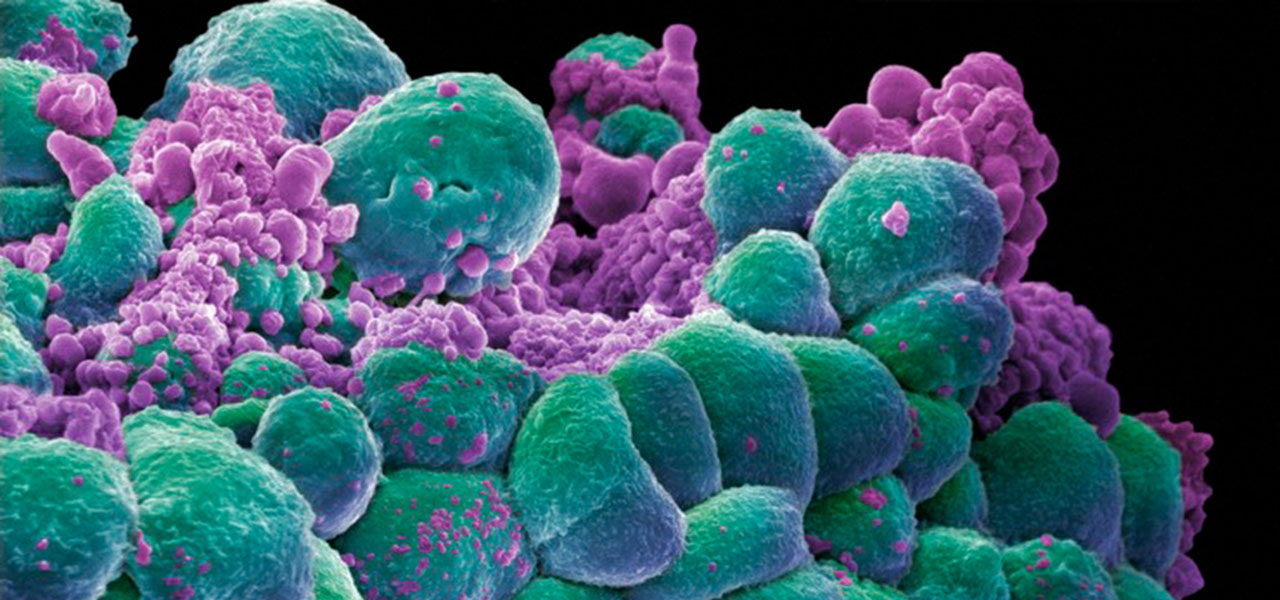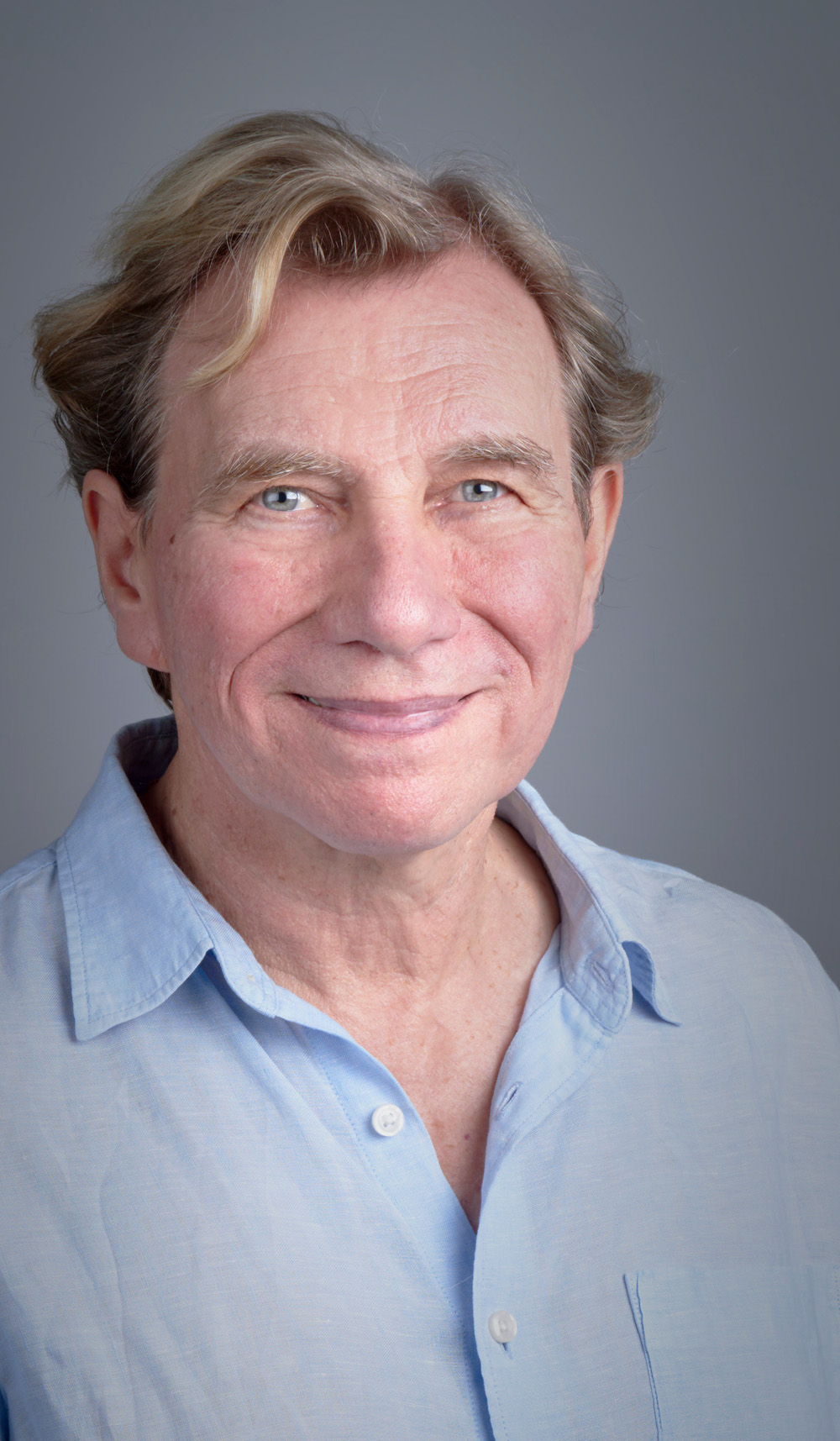Six months ago I was diagnosed with cancer. This is the story of what happened next . . .
The boom gate rises. I drive into the car park. It’s inside a converted factory. The roof is high, made of corrugated iron with wide skylights, so the place is flooded with a creamy glow, as in an artist’s studio. Birds fly freely inside the airy space. I like it here for some reason. It’s quiet, like being in a tall cathedral made of tin. I sit here undisturbed in the car to think about what the specialist told me half an hour ago.
‘It looks like there’s a bit of mischief . . .’
He must have said this to patients scores of times or more. But I’m not one for euphemisms. He may as well have spoken plainly, and said ‘You have cancer’.
•
In movies, a diagnosis is often unexpected and dramatic. The reality takes longer, giving you plenty of time to get used to the idea, plenty of time to dread the result of the latest test. First the GP says after a routine blood sample, ‘That number looks a bit high. Probably nothing to it, but let’s repeat next week.’ And after the repeated test, a referral to a specialist, ‘just in case’.
It’s a nuisance to take a morning off work. This should be an ordinary day. I have enough to do.
‘The number from the test isn’t so important,’ the specialist explains. ‘It’s more how the numbers change over time. It’s the trajectory we look at. Yours have been rising steadily. There may be nothing to worry about, but let’s investigate to be on the safe side.’
The word ‘trajectory’ sticks in my mind. Every time I hear it, I find myself flinching. The number goes up again. I’m not even sure what it means. Some measurement that indicates – that may indicate – presence of a cancerous tumour.
I’m sent for an ultrasound. There’s a screen with an image on it, but I avert my eyes. I don’t want to see that dark flickering shape, like a demon-seed growing inside me.
I’m sent for a biopsy. It’s a day procedure: a tube inserted up my backside with a camera and needles for taking samples at its head: a one-eyed, multi-fanged, metal snake. I’m relieved to have a full anaesthetic. A few days later I get the phone call.
‘It looks like there’s a bit of mischief . . .’
•
Like most of us, I’ve known people who’ve had cancer. Some died (friends’ parents; that woman at work years ago whose name I’ve forgotten). Others had treatment and recovered; memories of them pale in headscarves fading as the years go by. As well as sympathy, there’s an atavistic relief too, as though a part of your brain is thinking, ‘well it’s happening to them, so it’s not happening to me’. It’s like driving past a crashed car – ambulance lights flashing red and blue, figures huddled over a body on the ground – then accelerating away, turning up the radio to put a distance between the scene of horror and yourself.
I find I have an urge to run away and hide from this threat, as from a hooded assassin. Remote places where I could never be found come to mind. I remember a fisherman’s bach on a New Zealand fjord, inaccessible by road. If only it would leave me alone. I promise to be no trouble. But cancer is no black-clad figure out on a hillside, watching me through the telescopic sight of a rifle. It is my own body, the cells crashing and grinding against each other like faulty cogs in a machine.
•
The specialist has the reassuring authority that surgeons and airline pilots always carry. He describes the usual treatment options, ending with radical surgery: opening me up and removing the mischief entirely. It’s a complex, intricate operation with a risk of complications but he recommends it. This is my kind of talk. I agree.
There are other investigations over the coming weeks. I don’t mind; the more information the surgeon has beforehand, the better.
The CAT scan. No worries. I’ve had several in the past.
The MRI scan. This makes frightening, loud clanking noises. It’s like lying inside the engine of a 747 as it prepares for takeoff. I hate the thought of a sick child having to endure this. I’m offered noise-cancelling headphones and a catalogue of music. After noting the poor selection, I choose some country and western. Hello Patsy Cline.
The nuclear scan. The results of this show whether the cancer has spread to my bones. This is a particular challenge for my sang-froid. (The answer is no.)
In hospital for surgery at last, I am turned within minutes into a patient. I undress and put on an open-backed gown. An identity tag is attached to my wrist. People repeatedly ask my name and date of birth. Lying silently on a trolley, I wait to be wheeled to the theatre. The process is disempowering but I embrace it. I want to walk through the fire, the sooner to emerge on the other side.
Some people find surrendering control difficult. They resist taking a sleeping tablet or even a Panadol for a headache. I’m the opposite. It’s almost worrying how I can surrender myself at times. It’s a relief. I love sleeping, and slide easily, even eagerly, into unconsciousness. I resist delving into the psychology of this tendency, of being ‘half in love with easeful Death’ as Keats put it.
On the operating table, I begin the countdown for the anaesthetist. Ten, nine, eight, seven … six hours later I wake in a chemically-assisted calm. I note the oxygen line at my nostrils. I take in the cannula embedded in each of my hands. The four lines coming in (saline drip, morphine, anticoagulant, and anti-nausea medication, I later learn). The two lines coming out: one from my bladder, and the other a rubber drain tube which hangs disconcertingly out of my stomach. I notice with relief too, that the incision is neatly vertical, leaving a symmetrical line from belly button to groin.
Moving to either side triggers pain, so it’s easier to lie still and drift back to sleep. On and on I float. This must be the netherworld that opium-smokers like de Quincy sought, I realise. And very nice too. My time out of time, space out of space, is interrupted periodically by a nurse taking my vital signs.
‘That’s good,’ she says, noting my blood pressure. ‘You’re doing well,’ she adds, writing my heart rate down. I feel pleased to be praised. I am a good patient.
By the second day, constant somnolence begins to feel suffocating. With the help of two nurses (London, Dublin), I’m supported to the shower, afterwards sitting in a chair for an hour before the bed draws me back.
‘Breathe right in, then slowly exhale,’ says Dublin.
I do as she says, to feel a searing pain as the rubber drain tube is pulled out through my stomach.
A few days later I can bear to eat solid food. It’s possible to get up from the bed without help, forcing myself to rise and shuffle around my room, or sit and read in a chair. After waiting an hour for the nurse to help me to the shower, I decide to do it alone. The patient begins to be an agent again.
The surgeon inspects his handiwork, making confident, hopeful prognostications. We discuss the subject like two hardened professionals. The following day I go home.
I make progress with all those books I’ve been intending to read. I get through boxed sets of two entire TV series, developing a crush on Lucy Liu as Dr Watson.
After ten minutes walking, though, I find I’m exhausted. A few days later I can manage 30 minutes. After a week I have my catheter removed. It’s pleasing to have my body entirely under my control at last. I make halting attempts at helping around the house. Two weeks after discharge, I start work from home a few hours a day – this grows rapidly as I get fired up. And today I start back full-time at the office.
The memory of this time will fade, I know. And yet the sharp horror of encountering my own mortality remains: a skull glimpsed in the mirror where I expected to see my face. So much of our lives revolves around familiar – comfortably familiar – routines. On Monday night I put the bins out. On Saturday morning, a trip to the market. How many years have I done this? I imagine a vast warehouse stacked high with all the shopping I have ever done. All those tins of Italian tomatoes. The hundreds of kilos of coffee. The paper towels and pyramids of Frank’s rye bread, as high as houses. How many shopping bags filled in my life before I die? The number is incalculable but finite.
Somewhere in arithmetic that number exists, but I do not want to know it.
Now, more than ever, I know this cannot last. There is no escape, only postponement of the inevitable end, whatever mischief is ultimately responsible. I take nothing for granted. I cherish the hour. There is no such thing as ‘an ordinary day’.
Image: Cancer cells (Wellcome Institute)





In the first two blogs I read, your way with words is apparent. If you have written a book, do give me details as I would like to read it.
Jill
Hi Jill, thanks for your words :) See the top menu for details of the 2 novels I’ve published – both should be available in Amazon or Abebooks.com. Regards, Paul
(PS, Do you know Tamar Paluch by any strange coincidence?)